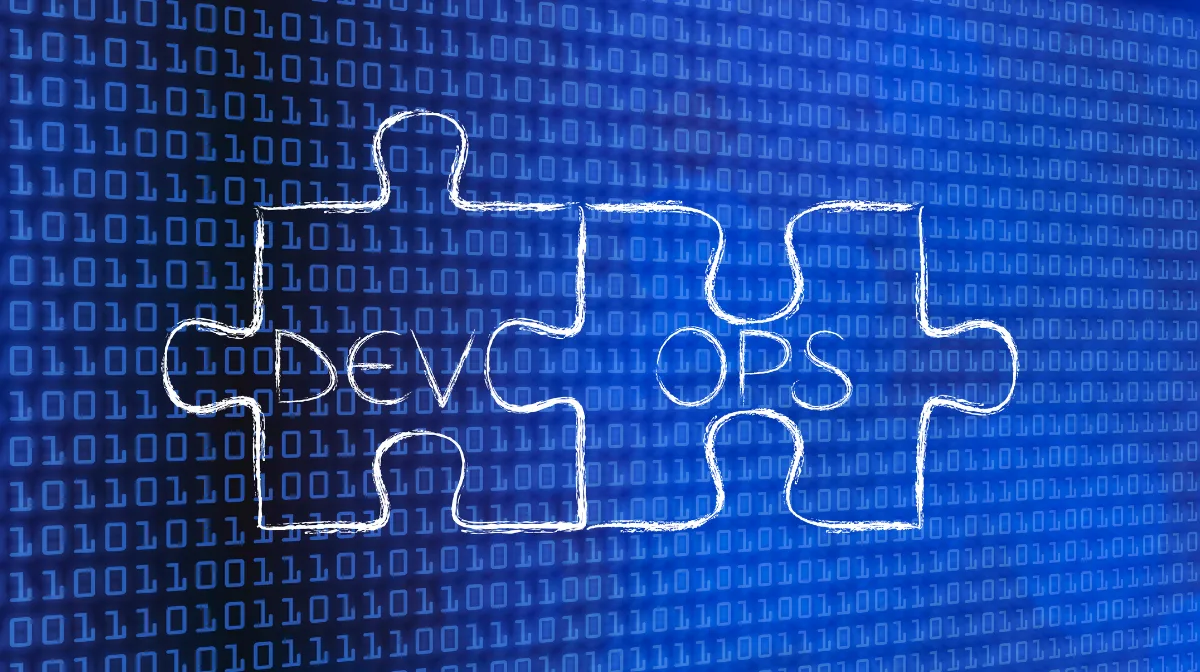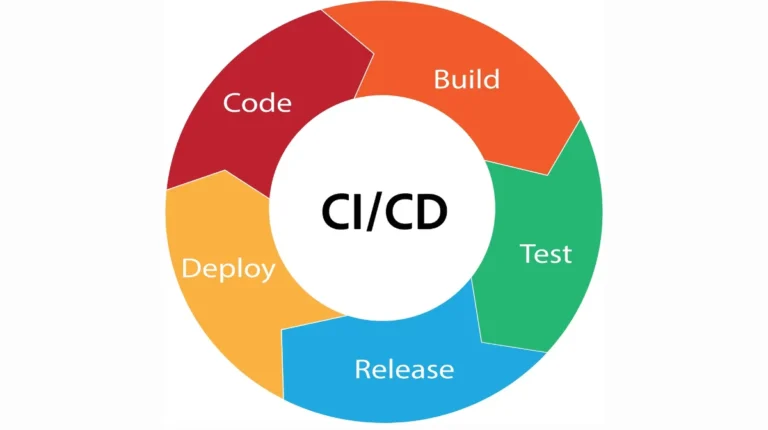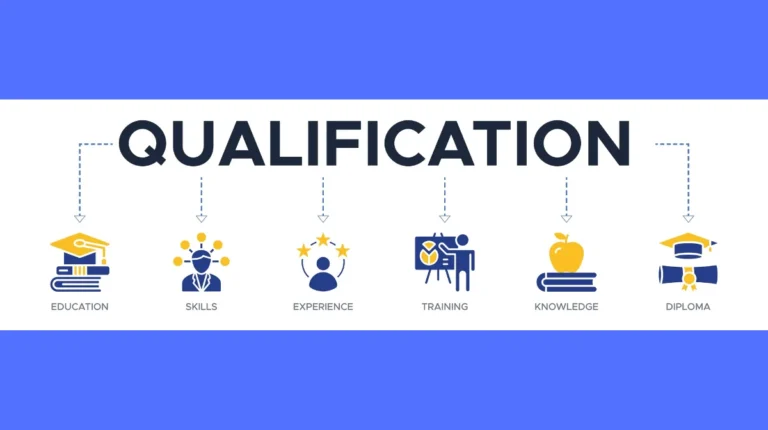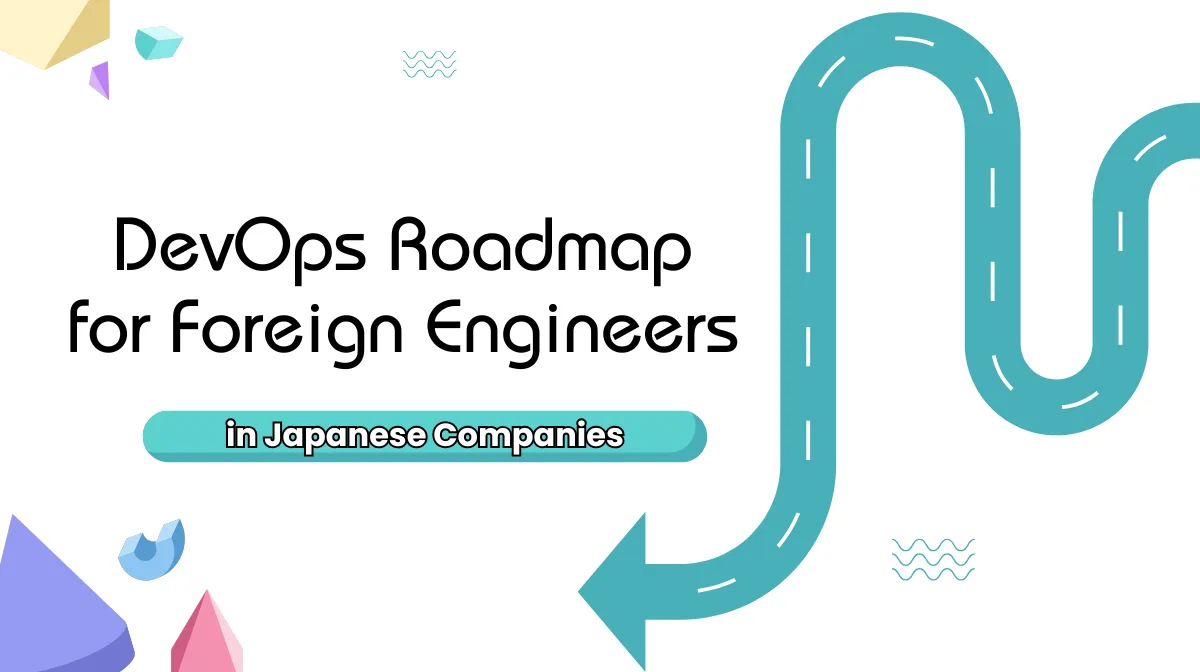For foreign engineers aspiring to excel as DevOps professionals in Japanese companies, this article explains a DevOps roadmap that takes into account Japan’s unique development culture.
We introduce a concrete path for systematically acquiring skills from fundamentals to specialized expertise while overcoming language and cultural barriers, as well as the unique strengths that foreign engineers can leverage.
- A step-by-step DevOps roadmap tailored for foreign engineers in Japanese companies.
- How to overcome language barriers and adapt to Japan’s quality-focused development culture.
- Career paths, certifications, and communities to advance your DevOps career in Japan.
1. What is a DevOps Roadmap? Career Opportunities in Japanese Companies

DevOps integrates Development and Operations to achieve improved efficiency and quality in software development.
Particularly in Japanese companies, DevOps adoption is characterized by a quality-focused culture.
For foreign engineers to develop DevOps skills in Japanese companies, understanding systematic learning pathways is essential.
What is a DevOps Roadmap?
A DevOps roadmap is a guideline that systematically organizes the skills and knowledge required for DevOps engineers and shows the learning pathway.
An effective roadmap is not merely a list of tools or technologies, but clearly demonstrates how each element interrelates and how they are utilized in practical work.
The key point when utilizing a roadmap is to learn gradually from skills required in practical work, rather than trying to master all technologies at once.
DevOps Adoption Status and Roadmap Characteristics in Japanese Companies
DevOps adoption in Japanese companies, while somewhat behind compared to global companies, is steadily progressing.
Particularly, there are characteristics such as thorough quality control, emphasis on documentation creation, consensus-based decision making, and risk-averse tendencies.
Points particularly emphasized in DevOps roadmaps for Japanese companies
- Automation of change management and approval processes
- Automation of detailed document generation
- Thorough test automation for quality assurance
- Utilization of tools that promote inter-team communication, etc.
Benefits for Foreign Engineers Using DevOps Roadmaps
Regarding the benefits for foreign engineers acquiring and utilizing DevOps skills in Japanese companies
Career Benefits
In terms of career benefits, there are advantages such as expanded employment and job change opportunities through high-demand skill sets, unique strengths through the fusion of global perspectives with Japan’s specific quality management, and active participation in international projects leveraging multilingual skills.
Technical Acquisition Benefits
In terms of technical acquisition, there are advantages such as obtaining the latest information through access to English technical documents, deep understanding through comparison with DevOps practices in one’s home country, and problem-solving approaches from different cultural perspectives.
2. DevOps Roadmap: Fundamental Skills Edition

To build a career as a DevOps engineer in Japan, solid fundamental skills are essential.
Particularly for foreign engineers, it’s important to acquire these fundamental skills while integrating them with the unique development culture of Japanese companies.
Programming Languages and Scripting Fundamentals (Python, Shell, Go)
Programming in DevOps primarily focuses on automation and infrastructure as code.
Languages particularly emphasized in Japanese corporate DevOps environments
- Python with high versatility
- Shell (Bash) essential for basic automation in Linux environments
- Go (Golang) excellent in performance and simplicity
- Ruby used in some Japanese companies, etc.
The key point for foreign engineers is to develop the ability to handle Japanese comments and documentation while leveraging the advantages of English documentation and learning resources.
Linux/UNIX Systems and Command Line Proficiency
Understanding Linux/UNIX systems is extremely important in Japanese DevOps environments as well.
Various skills are required including basic commands, text processing, process management, network operations, and package management.
As a characteristic situation specific to Japanese companies, there is often a mixture of on-premises and cloud environments.
An advantageous point for foreign engineers is that many Linux technical documents are written in English, making access to the latest information easier.
Version Control and Git Workflow: Practice in Japanese Companies
Characteristics of Git workflows in Japanese companies
- Emphasis on detailed commit messages
- Integration with ticket numbers
- Thorough review processes
- Regular branch naming and management, etc.
For foreign engineers, while the technical aspects of Git are relatively easy to master, it’s important to understand the unique workflows and communication patterns of Japanese companies.
■日本でエンジニアとしてキャリアアップしたい方へ
海外エンジニア転職支援サービス『 Bloomtech Career 』にご相談ください。「英語OK」「ビザサポートあり」「高年収企業」など、外国人エンジニア向けの求人を多数掲載。専任のキャリアアドバイザーが、あなたのスキル・希望に合った最適な日本企業をご紹介します。
▼簡単・無料!30秒で登録完了!まずはお気軽にご連絡ください!
Bloomtech Careerに無料相談してみる
3. DevOps Roadmap: Infrastructure Edition

For DevOps engineers, infrastructure knowledge is a foundational skill set.
Particularly in Japanese companies, which are in a transitional period from traditional on-premises environments to cloud migration, understanding both environments is important.
Container Technology (Docker) and Orchestration (Kubernetes)
- Container technology is a technology for packaging applications and their dependencies to ensure consistency across different environments.
- Docker is the basic tool for creating, running, and managing containers.
- Kubernetes is the de facto standard for container orchestration and is increasingly adopted by Japanese companies operating large-scale systems.
As a characteristic situation specific to Japanese companies, cautious approaches are often taken for container technology adoption, with gradual migration being preferred.
For foreign engineers, container technology is a relatively approachable field since it’s internationally standardized technology.
Cloud Platforms: Market Position of AWS, Azure, and GCP in Japan
The Japanese cloud market continues to grow similar to global trends, but has several characteristics.
- AWS holds the largest share in the Japanese market as well.
- Azure has high adoption among companies already using Microsoft products.
- GCP leverages its strengths in data analysis and AI/ML-related services.
- There are also services utilizing domestic Japanese data centers such as Sakura Cloud and IDCF Cloud.
In Japanese companies’ cloud selection, data residency and compliance with security standards tend to be particularly emphasized.
Infrastructure as Code: Implementation of Terraform, Ansible, CloudFormation
- Infrastructure as Code (IaC) is a methodology for defining and managing infrastructure as code and is one of the core practices of DevOps.
- Terraform is widely used for cloud resource provisioning.
- Ansible is characterized by being agentless with simple syntax.
- AWS CloudFormation is an IaC tool specialized for AWS resources.
As a characteristic of IaC adoption in Japanese companies, there is a tendency to emphasize meticulous documentation and sufficient verification in test environments.
When foreign engineers practice IaC in Japanese companies, techniques such as bilingual commenting and variable naming in both Japanese and English within code are effective.
4. DevOps Roadmap: CI/CD Edition

CI/CD (Continuous Integration/Continuous Delivery) is a core concept of DevOps that accelerates software release cycles by automating from development to production environment deployment.
In Japanese companies as well, CI/CD adoption is gradually progressing, but it’s being advanced while harmonizing with quality-focused culture.
Building Continuous Integration Environments (Jenkins, GitHub Actions)
Continuous Integration (CI) is a practice of regularly integrating developer code changes and discovering problems early through automated testing.
CI tools commonly used in Japanese companies
- Jenkins with rich plugin ecosystem and excellent customizability
- GitHub Actions integrated with GitHub
- GitLab CI/CD popular among companies using GitLab, etc.
Key points when building CI in Japanese companies are enriching automated tests for quality assurance and visualizing test results.
Continuous Delivery and Deployment Pipeline Design
Continuous Delivery (CD) is a practice of keeping software always in a releasable state and automating deployment to production environments.
Main components of CD pipelines
Build automation, test automation, quality gates, environment provisioning, deployment automation, approval workflows, etc.
In Japanese companies particularly, gradual deployment strategies such as blue/green deployment, canary releases, and feature flags are preferred.
CI/CD Culture and Practical Examples in Japanese Companies
CI/CD culture in Japanese companies has characteristics such as quality emphasis, strict change management processes, detailed documentation, and gradual adoption.
When foreign engineers practice CI/CD in Japanese companies, it’s important to understand not only technical aspects but also organizational processes and cultural aspects.
Particularly, incorporating the culture of “Ho-Ren-So (reporting, communication, consultation)” into CI/CD processes makes team collaboration smoother.
■日本でエンジニアとしてキャリアアップしたい方へ
海外エンジニア転職支援サービス『 Bloomtech Career 』にご相談ください。「英語OK」「ビザサポートあり」「高年収企業」など、外国人エンジニア向けの求人を多数掲載。専任のキャリアアドバイザーが、あなたのスキル・希望に合った最適な日本企業をご紹介します。
▼簡単・無料!30秒で登録完了!まずはお気軽にご連絡ください!
Bloomtech Careerに無料相談してみる
5. DevOps Roadmap: Monitoring and Operations Edition

Monitoring and operations are important pillars of DevOps, serving as the foundation for maintaining system health and early detection and resolution of problems.
In Japanese companies particularly, stable operations and high-quality service provision are emphasized, making these skills important elements for foreign engineers to be evaluated.
Monitoring and Alerting (Prometheus, Grafana, Datadog)
Effective monitoring systems enable early problem detection and rapid response.
Monitoring tools widely used in Japanese companies
- Zabbix: An integrated monitoring platform that comprehensively monitors servers, network equipment, and applications, detecting anomalies and notifying administrators
- New Relic: Integrated solution for APM and infrastructure monitoring
- Datadog: As a cloud-native integrated monitoring platform, etc.
Japanese companies particularly emphasize “visualization” in monitoring.
For foreign engineers, while setting up monitoring tools is a field with low language barriers, Japanese language support for alert messages and Japanese display of dashboards can sometimes be challenging.
Log Management and Analysis (ELK Stack, Splunk)
Collection, storage, and analysis of log data are essential for problem troubleshooting and security auditing.
Main log management tools
Splunk, Fluentd (developed by a Japanese person and adopted by many Japanese companies), etc.
Important points for log management in Japanese companies
Structured logging, centralized management, long-term storage strategy, access control, etc.
For foreign engineers, log analysis is one of the fields where language barriers are easily felt.
Incident Response and Fault Management: Japanese-Style Approach
Japanese companies have unique approaches to incident response and fault management.
Characteristics include
Thorough advance prevention, detailed fault reports, multilayered approval processes, company-wide information sharing, formalized recovery procedures, etc.
Japanese companies particularly emphasize the quality of “reports.” For foreign engineers, while Japanese-style incident response may feel formal at times, understanding and adapting to this culture can build trust with teams.
6. DevOps Roadmap: Security and Compliance Edition

“DevSecOps” which integrates security into DevOps’ accelerated development and deployment processes, is an essential approach in modern IT development.
Particularly in Japanese companies, high security requirements and compliance standards are often demanded, making it very important for foreign engineers to understand this domain.
DevSecOps Implementation Procedures and Tools
DevSecOps is the concept of “incorporating security from the early stages of development, not as an afterthought”
Implementation stages
- Threat modeling and security requirement definition in the planning stage
- Static Application Security Testing (SAST) in the coding stage
- Software Composition Analysis (SCA) and Dynamic Application Security Testing (DAST) in the build and test stages
- Container security scanning and infrastructure configuration verification in the deployment stage
- Continuous vulnerability monitoring and Security Information and Event Management (SIEM) in the operations stage, etc.
A characteristic of implementing DevSecOps in Japanese companies is harmonization with formal approval processes.
Japan-Specific Security Requirements and Compliance Response
Japan has unique security standards and compliance requirements.
Examples include
Personal Information Protection Law and response to 2022 amendments, ISMAP (Security Evaluation System for Government Information Systems), FISC Safety Measures Standards for financial institutions, industry-specific guidelines for healthcare (JISQ15001, Medical Information System Safety Management Guidelines), etc.
For foreign engineers, while these Japan-specific regulations may seem complex, understanding the correspondence with international standards enables efficient response.
Cloud Security Best Practices
Security in cloud environments is increasingly important in Japanese companies as well.
Key points include
Identity and access management, data protection, infrastructure protection, continuous evaluation of cloud configurations, security monitoring and incident response, etc.
What’s characteristic in cloud security implementation in Japanese companies is the prevalence of hybrid configurations with on-premises environments.
For foreign engineers, knowledge of international cloud security best practices becomes a significant strength.
7. How Foreign Engineers Should Proceed with DevOps Roadmaps

To succeed as a DevOps engineer in Japanese companies, approaches to overcome language and cultural barriers are necessary in addition to technical skills.
Here, we introduce specific ways for foreign engineers to efficiently acquire DevOps skills and demonstrate value in Japanese companies.
DevOps Learning Resources Considering Language Barriers
For foreign engineers, the Japanese language barrier becomes the first challenge in skill acquisition.
However, by selecting appropriate learning resources, efficient learning can be achieved.
DevOps resources related to Japan available in English
- English-language technical blogs of Japanese companies
- Information specific to Japan regions of AWS/Azure/GCP (English versions)
- Open source projects of Japanese companies on GitHub, etc.
Effective approaches also include
- Technical document translation using DeepL Pro
- Building collaborative relationships with bilingual teammates
Technical Documentation and Tools Usable in Japanese Environments
While Japanese is often used in Japanese development environments, knowing tools that don’t depend on language and multilingual document management methods enables smooth work progress.
Document Management
- Utilizing multilingual templates in Confluence
- Bilingual documentation in Japanese and English using GitHub markdown
- Code-based diagram creation tools like PlantUML are effective
Communication Tools
- Video conferencing tools with real-time translation functions
- Chat tools with translation bot integration are helpful
Phased Skill Development Plans: 3 months, 6 months, 1+ years
DevOps skill acquisition doesn’t happen overnight.
Particularly for foreign engineers, learning is necessary in both technical and language/cultural aspects.
3-month goals
- Technical skills: Linux command line proficiency, basic Git operations
- Language/cultural skills: Acquiring basic technical Japanese
6-month goals
- Technical skills: Infrastructure as Code implementation, basic Kubernetes operations
- Language/cultural skills: Intermediate-level technical Japanese
1-year goals
- Technical skills: Complex microservices architecture design, comprehensive DevSecOps implementation
- Language/cultural skills: Advanced-level technical Japanese
8. DevOps Certifications and Specializations Valued by Japanese Companies

Japanese companies have a culture that values certifications, and in the DevOps field as well, acquiring appropriate certifications becomes an effective means for foreign engineers particularly to objectively demonstrate their expertise.
Additionally, building portfolios that show practical skills is also an important element for increasing evaluation.
Value of Internationally Recognized DevOps-Related Certifications
DevOps-related certifications recognized globally receive certain evaluation in Japanese companies as well.
Major international certifications include
DevOps Institute certifications, Linux Foundation certifications, etc.
Evaluation points for international certifications in Japanese companies
- Exams that serve as practical ability proof are highly evaluated
- Those recognized as global standards are evaluated even without Japanese language support
- The scarcity of certified individuals within organizations increases the value of certificate holders, etc.
Evaluation of AWS/Azure/GCP Certifications in the Japanese Market
Cloud platform certifications hold particularly high value in Japan’s DevOps market.
Examples include
AWS certifications, Microsoft Azure certifications, Google Cloud certifications, etc.
Evaluation characteristics of cloud certifications in the Japanese market
- Market value tends to be high in the order of AWS > Azure > GCP
- Multiple certifications from the same cloud are highly evaluated as depth of specialization
- Multiple cloud certifications are evaluated as value in multi-cloud environments, etc.
Proving DevOps Implementation Capabilities Through Portfolios
While certifications are important as proof of knowledge, building portfolios that demonstrate practical skills is also a powerful appeal method, particularly for foreign engineers.
Effective DevOps portfolios include
- GitHub projects
- Technical blogs and documentation
- Open source contributions
- Practical demo environments, etc.
To effectively appeal to Japanese companies, it’s important to include solutions to specific challenges faced by Japanese companies and, if possible, demonstrate Japanese UI elements and operation verification in Japanese environments.
9. DevOps Communities and Learning Environments for Foreign Engineers

Community participation is extremely important for technical skill improvement and career building.
Particularly for foreign engineers, appropriate communities contribute greatly not only to technical knowledge but also to networking and understanding Japan’s technical culture.
Here, we introduce various communities and learning environments for learning and practicing DevOps in Japan.
DevOps Study Groups and Conferences in Japan
There are various study groups and conferences related to DevOps in Japan.
Many events are primarily in Japanese, but slides are increasingly in English or bilingual. Post-presentation networking sessions are excellent opportunities for building connections.
Events where foreign engineers can easily participate
Multilingual Online Communities and Forums
Online communities where participation is possible without feeling language barriers are extremely valuable resources for foreign engineers.
When participating in online communities, it’s important to initially participate as a “listener” to understand the community atmosphere and rules.
Online communities include
- Slack communities like DevOps Japan and Kubernetes Japan
- Discord communities like Japan Dev and Tech Japan
- Forums and Q&A sites like Stack Overflow Japanese version and Qiita
- Newsletters and blogs like Japan Dev Newsletter and Japan Cloud & DevOps Digest
Japan Tech Communities Accessible in English
There are several tech communities in Japan where participation is possible in English.
For foreign engineers to excel in Japanese tech communities, it’s effective to propose presentations or workshops that leverage their expertise and strengths, and to prepare bilingual slides.
Tech communities include
- Tokyo Developer Meetup
- English Speaking Tech Founders & Engineers in Tokyo
- Japan Cloud Infrastructure Meetup, etc.
- Events hosted by major tech companies like AWS and Microsoft Azure
10. Future Career Paths from DevOps Roadmap Perspective

DevOps skill acquisition not only enhances current market value but also serves as an important foundation for future career development.
Particularly for foreign engineers, DevOps’ diverse skill set will be a significant strength in long-term career building within Japanese companies.
Career Prospects in Japanese Companies Leveraging DevOps Skills
DevOps knowledge and experience open diverse career paths in IT departments and tech companies of Japanese companies.
Career path examples
- Beginner level (1-3 years): DevOps Engineer/Infrastructure Engineer
- Intermediate level (3-5 years): Senior DevOps Engineer
- Advanced level (5+ years): DevOps Lead/Architect, etc.
Characteristics of DevOps careers specific to Japanese companies
- In companies where lifetime employment culture remains, long-term growth and skill development tend to be evaluated
- Not only skills but also teamwork and internal coordination abilities become important elements for promotion
Deepening Specialization: SRE, Cloud Architect, Platform Engineer
Based on DevOps experience, further specialization enables challenges in more advanced roles.
Specialized career path examples
- SRE (Site Reliability Engineer)
- Cloud Architect
- Platform Engineer, etc.
When advancing to these specialized careers, acquiring specialized certifications in each field works advantageously.
Strengths for foreign engineers when deepening specialization
- Familiarity with overseas precedent cases
- Easy access to the latest information in English, etc.
High-Potential DevOps-Adjacent Technologies and Learning Priorities
In addition to DevOps foundation technologies, acquiring high-potential adjacent technologies can further enhance market value.
Learning priorities
- Highest priority (high short-term demand)
Kubernetes expertise, GitOps - High priority (growing fields)
MLOps/AI Engineering, Platform Engineering - Worth watching (long-term potential)
Low-code/No-code DevOps, AI-driven Operations (AIOps), etc.
Technology trends specific to the Japanese market
- High demand for hybrid cloud technologies that manage coexistence of legacy systems and cloud
- Rising value of compliance response automation technologies in regulated industries like finance and healthcare
11. Working as a Foreign Engineer Using DevOps Roadmaps
To succeed as a DevOps engineer in Japanese companies, both technical skills and cultural understanding are essential.
By utilizing the roadmap introduced in this article and gradually enhancing skills, language and cultural barriers can be overcome.
Foreign engineers are valuable individuals who bridge global perspectives with Japanese culture. Actively participating in communities and accumulating practical experience is the shortcut to success.
Additional Reading
The following articles introduce interview strategies for Japanese companies and methods for writing resumes and career history documents.




















